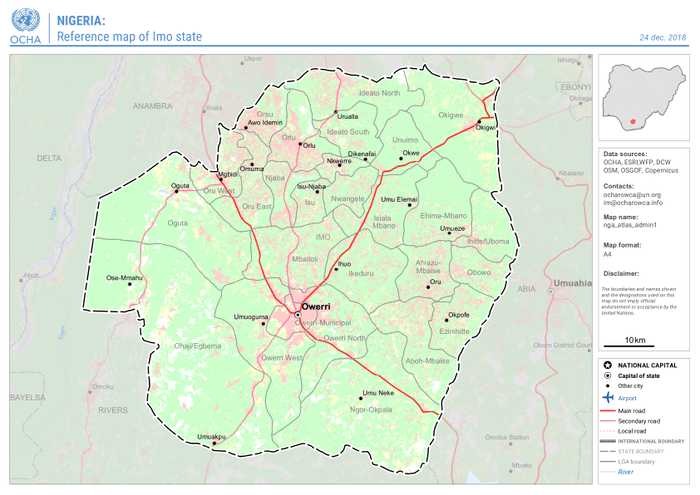Abia
Abia State, located in southeastern Nigeria, is renowned for its entrepreneurial spirit and commercial activities, particularly in the city of Aba. It boasts a rich cultural heritage, diverse ethnic groups, and a growing economy fueled by agriculture, trade, and manufacturing. Ongoing infrastructural development initiatives aim to support its thriving population.

Abia State, situated in southeastern Nigeria, stands as a testament to the resilience and entrepreneurial spirit of its people, particularly exemplified in the bustling city of Aba. Renowned for its vibrant commercial activities and dynamic business environment, Abia State is a beacon of economic opportunity and innovation in the region.
At the heart of Abia State's allure lies its rich cultural heritage, characterized by a tapestry of traditions, customs, and languages woven together by its diverse ethnic groups. The state's cultural diversity is celebrated through festivals, art, music, and dance, showcasing the vibrancy and resilience of its people.
Moreover, Abia State is a thriving economic hub, with Aba serving as its commercial nerve center. The city is renowned for its entrepreneurial spirit and industrial prowess, particularly in sectors such as manufacturing, textiles, and leather goods. The famous Ariaria International Market, one of the largest open-air markets in West Africa, serves as a testament to Aba's vibrant trading activities and commercial vibrancy.
Furthermore, agriculture plays a significant role in Abia State's economy, with fertile soils and favorable climatic conditions supporting the cultivation of crops such as oil palm, cassava, yams, and vegetables. The state's agricultural sector not only provides sustenance for its residents but also serves as a source of livelihood and economic empowerment for many.
In addition to agriculture and commerce, Abia State is undergoing significant infrastructural development initiatives aimed at supporting its growing population and enhancing the quality of life for its residents. Investments in roads, bridges, healthcare facilities, and education are essential to improving access to essential services and fostering economic growth and development.
Despite its achievements, Abia State faces challenges such as inadequate infrastructure, unemployment, and poverty. However, the state's government is committed to addressing these challenges through strategic planning, policy initiatives, and partnerships with the private sector and development partners.
As Abia State continues to harness its entrepreneurial spirit, cultural heritage, and economic potential, it remains poised for growth and prosperity. With a commitment to innovation, inclusivity, and sustainable development practices, Abia State is destined to emerge as a model of progress and prosperity in southeastern Nigeria.

- Capital Umuahia
- Country Nigeria
- Created
- Population 48000000
- Official Languages Igbo
- Ethnic Groups Igbo
- Land Area 6320
- Postal Code 440001



